
College Symposium
Please use the self-sign-up link and code "Academy2024" to create an account on our CE Portal. If this is your first time accessing our portal, you will receive a confirmation email from ERC and Pathlight Continuing Education Events with a link to log in. If you have an existing account, once you’ve completed the self-sign-up form, you can log directly into your account to access the webinar.
Download our instructional PDF.
Presented by

Adee Levinstein, MS, RD, LD, CEDS-C (she/her/hers)
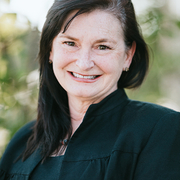
Anne Marie O'Melia, MS, MD, FAAP, CEDS-C (She/Her/Hers)

Casey Tallent, PhD (she/her/hers)
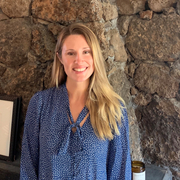
Kristie Simmons, MS, RD, CEDRD-S

Kyle Woodson, MA, LPC (he/him/his)

Leah Young, LCPC (she/her/hers)
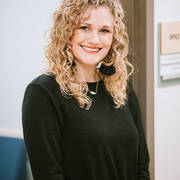
Leslee Marcom, PhD, CEDS-C (she/her)

Natalie Goodwin, PhD (she/her)
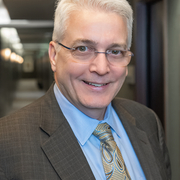
Steven F. Crawford, MD (He/Him/His)
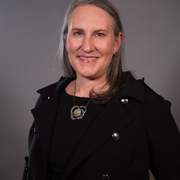
Elizabeth Wassenaar, MS, MD, DFAPA, CEDS-C (She/Her/Hers)

Wendy Foulds Mathes, PhD (she/her/hers)
Please join us for the 2024 College Symposium on Expanding the Community of Care: Working Together to Meet the Growing Demand for Mental Health Support on College Campuses. During this two-day event, you can earn up to 12 continuing education credits by attending informative sessions on various topics such as eating disorder and mental health assessment; treating trauma; ACT and DBT for emotion regulation; social media, body image and mental health, motivational interviewing; and more. We hope to see you there!
January 4, 2024
8:30 am – 10:00 am MT "Eating Disorder Assessment and Mental Health Assessment on Campus” 1.5 CE/CME/CNE Hours presented by Casey Tallent, PhD and Steven F. Crawford, MD *
Eating Disorders and disordered eating pose a significant health risk on college campuses, with as many as 25% of students reporting symptoms of eating disorders (NEDA). Research suggests that eating disorders have the best prognosis if treatment is started within the first three years of onset of the disorder. For the traditional college student, this entire three-year period may occur within the context of living on campus, which is why it is critical that college health care providers are trained to not only recognize eating disorders but must also be competent in assessing eating disorder symptoms and behaviors and knowing how to treat them. This presentation will provide education and training on identifying and assessing eating disorders in university counseling and health centers. Additionally, the presenters will include assessment considerations for common comorbid conditions (e.g, depression, anxiety, obsessive compulsive disorder, PTSD, hypothyroid, etc.) This presentation will utilize several case studies to illustrate identifying and assessing students with eating disorders and mental health concerns.
10:30 am – 12:00 pm MT “Treating Trauma on Campus: Defining the Guardrails” 1.5 CE/CME/CNE Hours presented by Kelly Souza, PsyD, CEDS
This presentation will focus on assessing for trauma. We will look at ways to assess for stability in student’s functioning to help inform if/when addressing trauma is appropriate. We will discuss barriers to treating trauma in the college setting and ways to support increasing stability to work towards treatment of trauma. We will also discuss the importance of diagnosing and incorporating appropriate treatment of trauma in treating the whole person and the various diagnoses students present with for therapy.
12:30 pm – 2:00 pm MT “Autism Spectrum Disorders and Mental Health” 1.5 CE/CME/CNE Hours presented by Elizabeth Wassenaar, MS, MD, CEDS-S, DFAPA
2:30 pm – 4:00 pm MT “Acceptance and Commitment Therapy: Working with the College Population” 1.5 CE/CME/CNE Hours presented by Leslee Marcom, PhD, CEDS and Kyle Woodson, MA, LPC
There is an emerging emphasis in clinical psychology on developing transdiagnostic models and interventions that apply to a range of disorders, particularly for college aged adults. Psychological Flexibility-Based Interventions, the transdiagnostic processes that inform Acceptance and Commitment Therapy, targets processes of change and increase the ability of the individual to behave and respond in ways that help move them into a life of vitality. Acceptance and Commitment Therapy (ACT) contains six core behavioral processes for change that can be utilized by both practitioner and client. This session will highlight how clinicians can use the ACT model and language to synthesize and target psychological flexibility-based interventions with college students in their current practice.
January 5, 2024
8:30 am – 10:00 am MT “Best Practices for Eating Disorder Care on Campus” 1.5 CE/CME/CNE Hours presented Adee Levinstein, MS, RD, LD, CEDS-S and and Wendy Foulds Mathes, PhD*
10:30 am – 12:00 pm MT “Body Image and Social Media” 1.5 CE/CME/CNE Hours – Sally Fleck, PhD and Natalie Goodwin, PhD
Social media has become a major part of our lives, with most people spending a large amount of time every day scrolling through their social media feeds. Unfortunately, the impact of these social media scrolls can create body image challenges or exacerbate existing body image distress, particularly in college students. This workshop explores the impact of social media on body image and disordered eating in college students and how to help clients manage the impact and find the positive in their social media experiences.
12:30 pm – 2:00 pm MT “Motivational Interviewing” 1.5 CE/CME/CNE Hours presented by Leah Young, LCPC *
Motivational Interviewing (and by extension Motivational Enhancement Therapy) is an effective technique for creating and fanning the flames of change beginning with our more resistant patients. It is a useful and necessary skill to help our patients determine their personal goals for change that reduces caregiver burnout.
2:30 pm – 4:00 pm MT “Collaboration and Wrap Around Care”1.5 CE/CME/CNE Hours presented by Anne Marie O’Melia, MS, MD, FAAP, CEDS-S and Kristie Simmons, MS, RD, CEDRD-S *
Given the higher acuity of mental health concerns in students and increased demand for mental health services on campus, many campus counseling centers are looking for additional resources to help them support their students. This presentation will review different types of adjunct and wraparound services that are available, how to assess which service will be most beneficial, and how to partner with these third-party providers to streamline referrals, communication, and treatment transitions. Hear from mental health professionals with experience working in college counseling, outpatient treatment, and higher levels of care about how to optimize relationships with third-party wraparound services to improve mental health for students and alleviate stress and decrease burnout for campus providers.
*Courses that have an asterisk next to their title will be eligible for an EDIP (Eating Disorder Informed Professional) certification. You will need to complete all 4 courses to receive the certification. For more information please click here. https://www.eatingrecoverycenter.com/resources/edip
If you have questions about this event, or need more information, please reach out to Wendy Foulds Mathes at [email protected]
Available Continuing Education Credit
In support of improving patient care, Eating Recovery Center and Pathlight Mood & Anxiety Center is jointly accredited by the Accreditation Council for Continuing Medical Education (ACCME), the Accreditation Council for Pharmacy Education (ACPE), and the American Nurses Credentialing Center (ANCC), to provide continuing education for the healthcare team.
As a Jointly Accredited Organization, Eating Recovery Center and Pathlight Mood & Anxiety Center is approved to offer social work continuing education by the Association of Social Work Boards (ASWB) Approved Continuing Education (ACE) program. Organizations, not individual courses, are approved under this program. Regulatory boards are the final authority on courses accepted for continuing education credit. Social workers completing this course receive 12.0 clinical continuing education credits.
Completion of this RD/DTR profession-specific or IPCE awards CPEUs (12.0 IPCE credit + 12.0 CPEU). If the activity is dietetics-related but not targeted to RDs or DTRs, CPEUs may be claimed which commensurate with participation in contact hours (One 60-minute hour = 1 CPEU). RDs and DTRs are to select activity type 102 in their Activity Log. Sphere and Competency selection is at the learner’s discretion.
Eating Recovery Center, LLC is approved by NBCC as an Approved Continuing Education Provider, ACEP No. 6815 Programs that do not qualify for NBCC credit are clearly identified. Eating Recovery Center is solely responsible for all aspects of the programs.
Eating Recovery Center, LLC is approved by the American Psychological Association to sponsor continuing education for psychologists. Eating Recovery Center maintains responsibility for this program and its content.
Eating Recovery Center, LLC is recognized by the New York State Education Department's State Board for Psychology as an approved provider of continuing education for licensed psychologists #PSY-0232.
Eating Recovery Center, LLC is recognized by the New York State Education Department's State Board for Mental Health Practitioners as an approved provider of continuing education for licensed mental health counselors. #MHC-0280.
Eating Recovery Center, LLC is recognized by the New York State Education Department's State Board for Social Work as an approved provider of continuing education for licensed social workers #SW-0756.
This activity was planned by and for the healthcare team, and learners will receive Interprofessional Continuing Education (IPCE) credits for learning and change.
All Eating Recovery Center, LLC sponsored educational activities are presented in compliance with the Americans with Disabilities Act (ADA). If you are in need of accommodations, please contact Wendy Foulds Mathes at [email protected].


